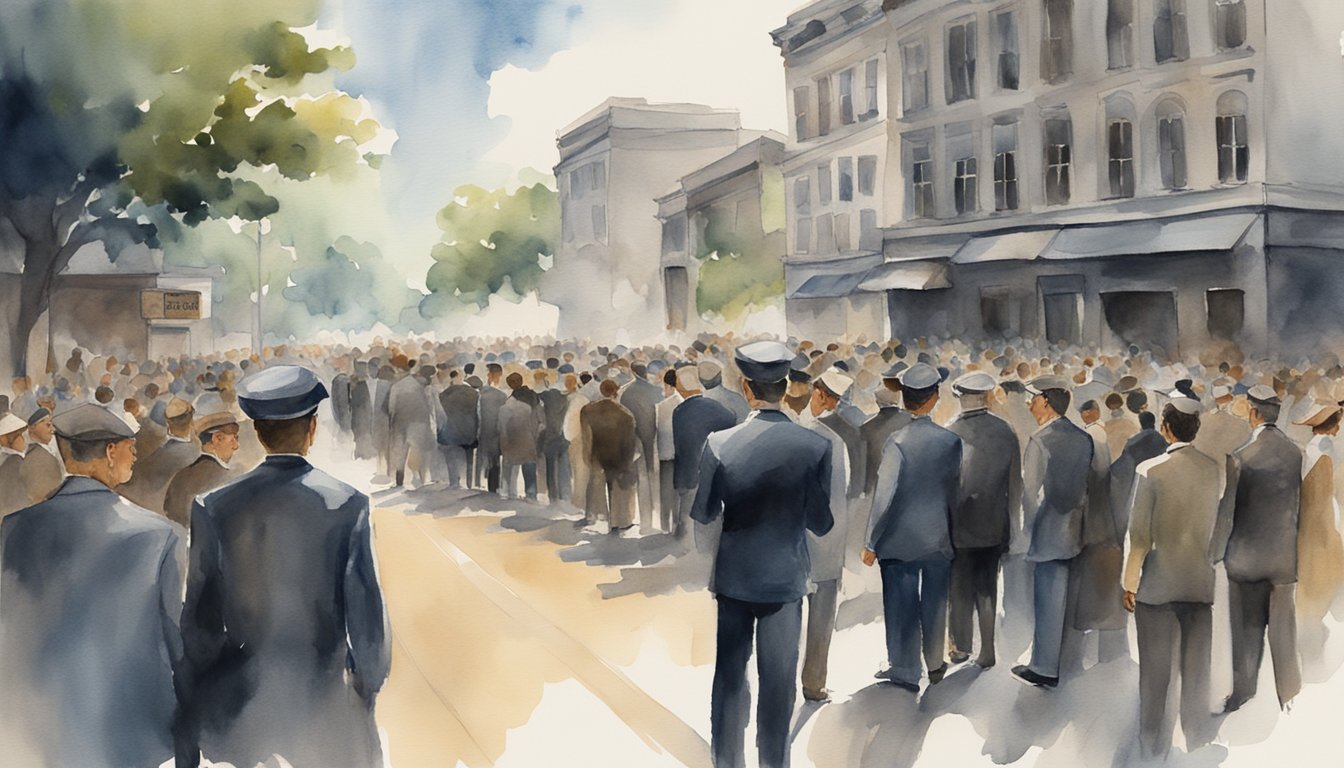Production and Historical Context
The film “Operation Finale” vividly brings to the screen the historical events of Adolf Eichmann’s capture, threading drama and suspense through accurate depictions of true incidents. Directed by Chris Weitz and launched in 2018, the movie delves into the depths of one of history’s most pivotal captures.
Inspiration and Screenplay
“Operation Finale” is inspired by the real-life capture of Adolf Eichmann, a key architect of the Holocaust, by Mossad agents in Argentina. The screenplay, penned by Matthew Orton, focuses on the infamous ‘Final Solution’ and the backstory to one of World War II’s most notorious figures.
Casting and Characters
Ben Kingsley portrays Eichmann, channelling the ‘banality of evil’ he represents. Oscar Isaac takes on the role of Peter Malkin, the Mossad agent who physically captured Eichmann, depicting a haunting game of cat and mouse between hunter and prey.
Filming Locations and Set Design
The production used authentic locations, replicating Argentina and various historical settings to ground the viewer in the period. Efforts were made to faithfully recreate the ambiance of the 1960s, further immersing audiences into the narrative’s fabric.
Historical Accuracy and Adaptation
While “Operation Finale” is a drama and thriller, it adheres closely to historical records, painting a compelling picture of real events. Discussions about the ‘Final Solution’ and the portrayal of Eichmann’s role in it help reacquaint viewers with this dark chapter in history.
Cultural and Social Impact

The film “Operation Finale” delves into the gripping narrative of Adolf Eichmann’s capture, offering a fresh lens on historical events that continue to shape cultural and societal discourse.
Reception and Critique
The film was received as a dramatic retelling of a pivotal moment in history. Responses highlighted Oscar Isaac’s performance as Peter Malkin, a Mossad agent instrumental in Eichmann’s capture. Critics observed that, while it carried a PG-13 rating, the movie did not shy away from the darkness of Eichmann’s deeds. It brought the covert aspects of espionage to light, focusing on the tireless work of Mossad agents and the CIA during Operation Finale. Viewers saw a poignant storyline unfold within the shadowy streets of Buenos Aires, where the operation took place.
Themes and Interpretation
“Operation Finale” grapples with heavy themes, centering on justice and the weight of history. It sparks discussion on the Holocaust, examining through its narrative the “banality of evil” concept introduced by philosopher Hannah Arendt in her work “Eichmann in Jerusalem.” The film explores issues of anti-Semitism and portrays the Jewish people’s resilience. It transports audiences to 1960s Argentina and Austria, highlighting not only the linguistic barriers but also the moral conflicts involved in bringing a Nazi war criminal to trial.
Influence on Media and Society
The historical thriller has contributed to a broader understanding and awareness of espionage and the intricate efforts required to enforce justice upon Nazi war criminals post-World War II. By rendering a powerful depiction of Operation Finale, the film has stimulated an interest in history and the essential chronicles of the Jewish community. The cast’s portrayal of historical figures has cemented the cultural significance of this event. Representations of such critical moments in media reinforce the imprints left by history on modern society, emphasizing lessons learned and the ongoing impact of the Holocaust.

